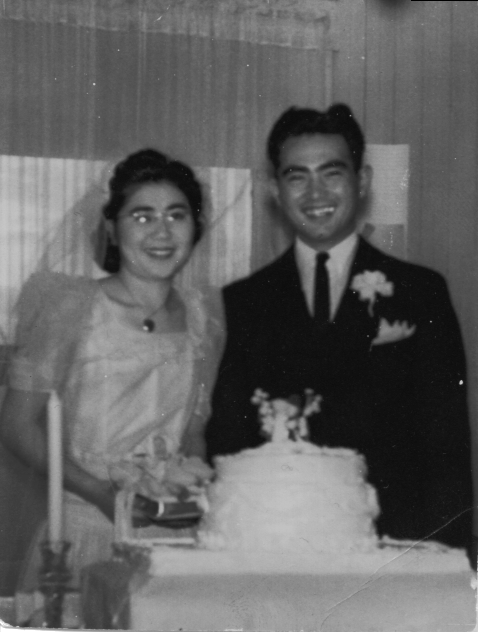Mas and Lili Yamasaki During World War II
The following text on Mas and Lily Yamasaki’s experience of World War Two was written using information from a 1995 Houston Chronicle Article Excerpt.

Mas and Lily Yamasaki had just celebrated their marriage and were beginning to enjoy their youths of being deep in love and spend the rest of their live together, when they were forced into a U.S internment camp. A shared nightmare which would change the trajectory of their life.
Along with 120,000 Japanese Americans the couple were forced to sell all their posessions and report to a US internment camp. The Yamasaki’s honeymoon was spent inside the confines of barbed wire fences and watch of US soldiers in Tule Lake camp, Northern Californian. Both 22, they spent a less than ideal first year of their marriage trapped in an unsanitary, makeshift community. "We were young, we could have done so much," Mas Yamasaki said. "It was quite an experience. I wouldn't wish it on anyone else." The inmates were expected to live as if nothing happened continuing normal activities: holding jobs and sending children to “school”. Mas Yamasaki worked as a social director inside the camp and Lily Yamasaki worked helped teach dance classes. The top paying jobs were $19 a month. Mas Yamasaki mentioned that after recalling their story to his children that "Our children look at us and say, `How stupid. Why didn't you resist?' " “Things were happening so fast I couldn't think how the hell my government could do this to me."
The Yamasaki’s were finally released from the internment camp in 1943 and ended up moving to Dayton, Ohio for work. Yet, the afteraffects of the internment were in full effect as the Yamasakis found trouble in reestablishing themselves. Furthermore, still left deeply ingrained were the memories of the the barracks, food lines, and public latrines of the internment camp. Mas Yamasaki would work as a manager with Borden Dairy for 37 years until he moved to Houston to be closer to his son.
Now just after the 50th anniversary of WW2, the Yamasakis remember the many times they have spread their story through the many anniversaries. They are also reminded of the lost years of their youth and the struggles that followed as a result. Now living in northwest Houston, the Yamasakis continue to discuss their story.
Just like the Yamasakis, Most Japanese-Americans who were at least in their teen years during the war have vivid memories of the 1940s and the impact the war had on them personally. No story is the same as some were able to live relatively normal lives on Texas farms, whereas others struggled through the brutal internment camp life. Yet all look back at the wartime period as a terrible chapter in their life.
References
Stefanie Asin, " V-J/PEACE, PROSPERITY AND PAIN/STIRRING MEMORIES/Relocation to internment camp was a nightmare for Japanese-American couple," Houston Chronicle (1995)
